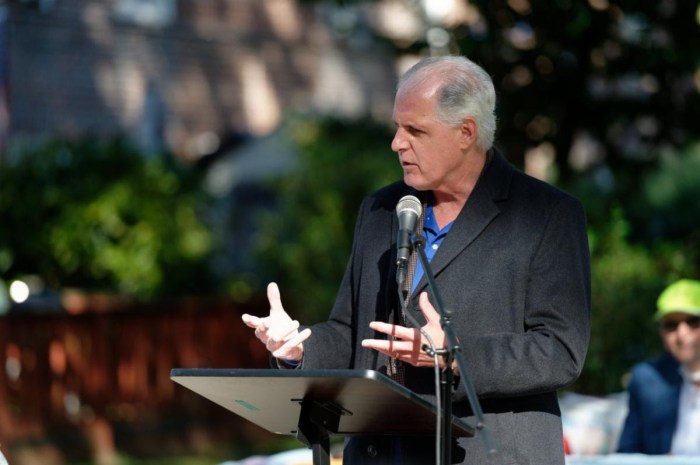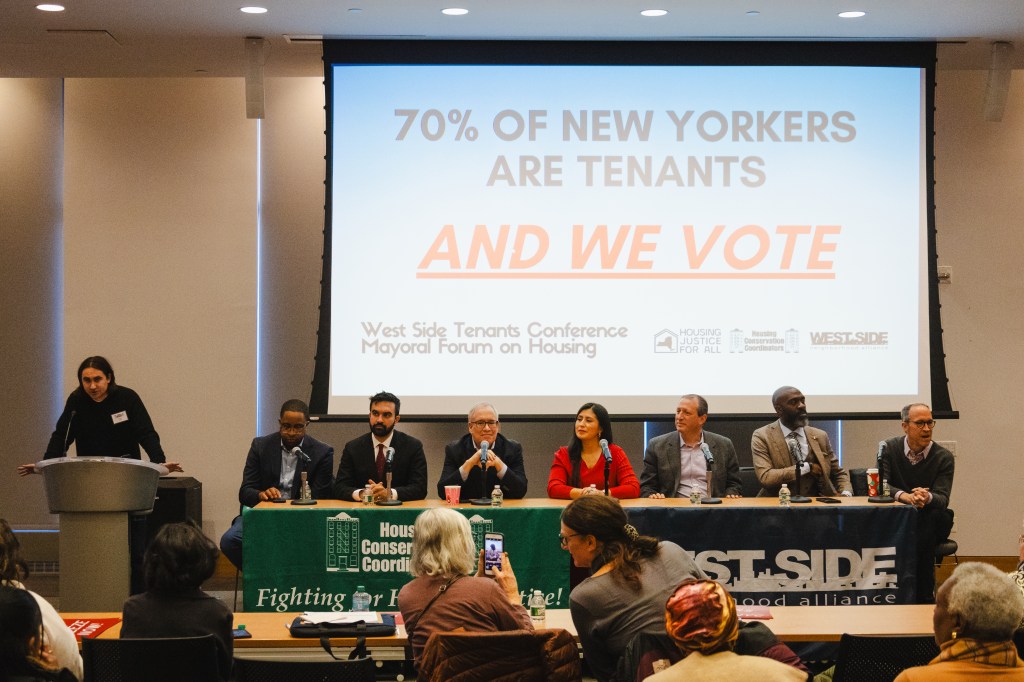By Michèle De Meglio
It’s more common than you might think. Every year, more than 1.4 million women and men are stalked in the U.S. That’s why Safe Horizon, an organization offering support to victims of abuse and the largest provider of domestic violence services in the country, is promoting its anti-stalking initiative. By informing the public about the signs of stalking and how they can fight back, the organization is hoping to stop people from being victimized. “Stalking…can be the predecessor of more violent crimes, such as assault, and in the worst cases, murder,” the organization says. To help victims feel safer, Safe Horizon has implemented a program where locks are installed for free in homes of New Yorkers who have filed police reports out of fear for their safety. In 2005, 2,100 new locks were installed in homes throughout the city. In Brooklyn, 722 were installed. Once someone requests a lock by calling Safe Horizon’s 24-hour Crime Victims Hotline, the organization makes sure that it is installed in 24 to 48 hours. Even Safe Horizon staffers have been victims of stalking. Michele Archer, the director of Safe Horizon’s anti-stalking program, received constant phone calls from an ex-boyfriend who was angry that the relationship was over. Things got worse when he repeatedly showed up on her doorstep unannounced and followed her into the subway yelling, “Do you want me to get a gun and shoot you?” “I was embarrassed to confide in anyone, since the people I had already told responded, ‘just tell him to stop,’” Archer said. “But stalkers don’t just stop.” Archer is now free of her stalker and hopes to move to Carroll Gardens or Brooklyn Heights soon. Through the anti-stalking program, Safe Horizon provides victims with information about “risk assessment and safety planning, short-term counseling, [and] crisis intervention,” Scott Millstein, chief operating officer of Safe Horizon, explains. One of the most important messages Safe Horizon tries to convey through the program is that victims must save evidence proving that they are being stalked, such as letters, emails and messages left on answering machines, to use in court. Telephone harassment can be reported by contacting the Unlawful Call Center at 1-800-518-5507. Callers can also get help in documenting harassing phone calls. Also, get a restraining order, make several copies of it, and carry one at all times. Victims should notify their family, friends and employers that they are being stalked and provide a photo of the stalker so they can call the police if they spot the individual. According to Safe Horizon, more than half of stalking victims know their stalker. And, women are three times more likely to be stalked than raped. Most alarming, 76 percent of women killed by former lovers were first stalked by the individuals. “All stalkers should be considered unpredictable,” Safe Horizon warns. Safe Horizon maintains Child Advocacy Centers to help kids who have been the victims of violence. At the centers, children remain in a kid-friendly, day care-like facility while police officers, doctors and district attorneys visit them to take their statements and offer assistance. One such center is located in Brooklyn. To learn more about Safe Horizon’s programs or for information about counseling and support services offered by the organization, log onto www.safehorizon.org. Victims of stalking can call Safe Horizon’s 24-hour Crime Victims Hotline at 1-866-689-HELP. Anyone in immediate danger should call 911.

































